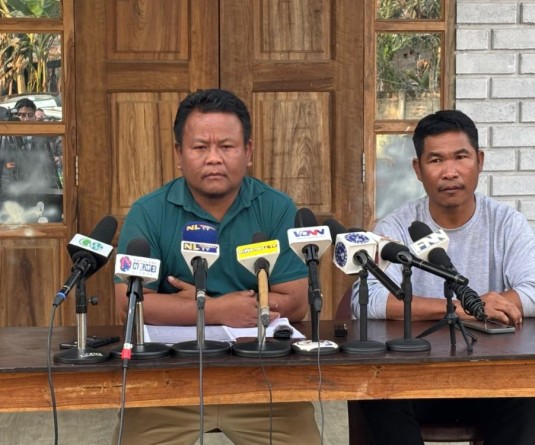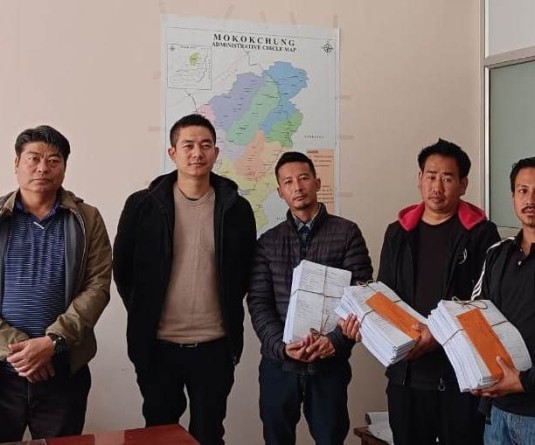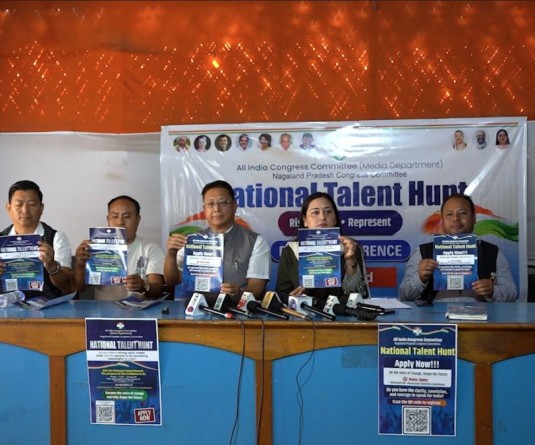Participants and guests during the launch of the ‘Nagaland Civil Society Organisation Charter for SDGs,’ at Hotel Acacia, Dimapur on December 20. (Morung Photo)
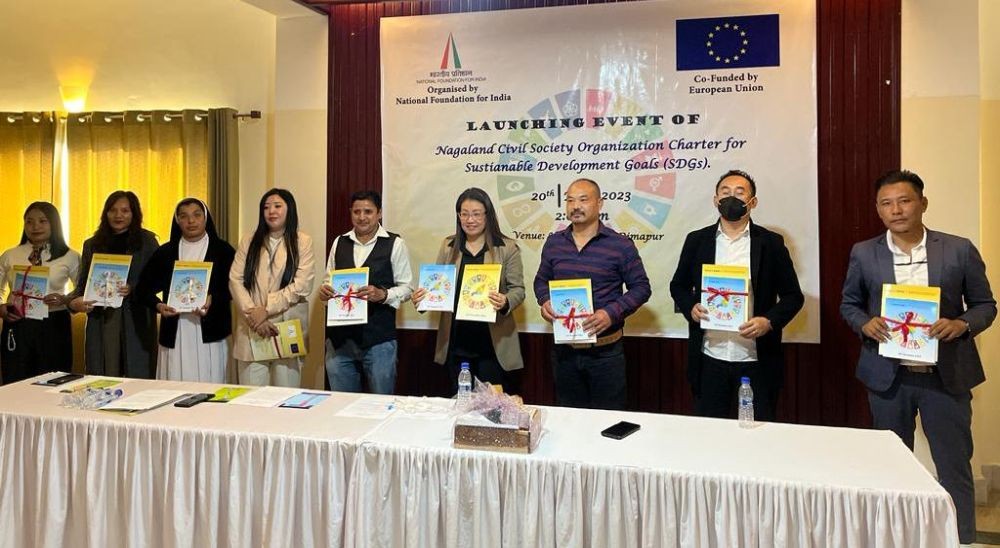
Morung Express News
Dimapur | December 20
A 39-page charter containing detailed reports, information and policy recommendation on various sectors of the State related to the United Nations’ Sustainable Development Goals (SGDs) was officially launched here in Dimapur at Hotel Acacia on December 20.
Referred to as, ‘Nagaland Civil Society Organisation (CSO) Charter for SDGs,’ the initiative is part of National Foundation of India Project for the districts of Dimapur, Kohima and Tuensang, in collaboration with Can Youth, Ark Foundation and Dolen Thangjam Society.
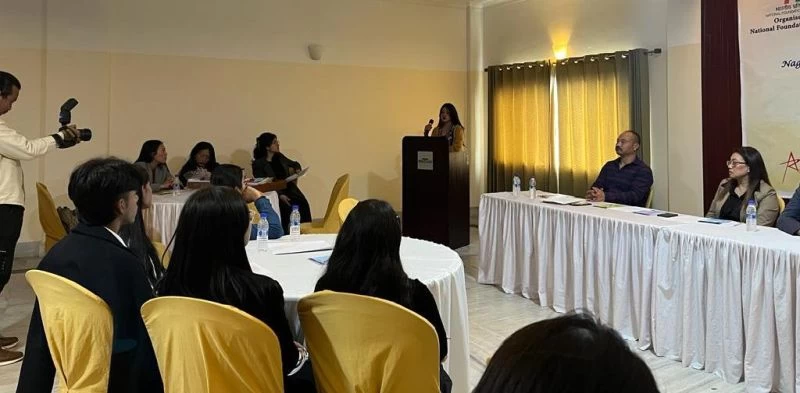
According to the document’s vision statement, the intention behind the development of the CSO charter is to assist policymakers to consider the desires of the people at the grassroots, in order to facilitate practical and realistic policies which will have a fruitful development outcome. “This charter can be a source of reference for researchers, students, and professionals for their work on CSOs on SGDs in Nagaland,” it stated.
ADC of Dimapur, Mhalo Humtsoe who launched the charter noted the crucial role played by CSOs as a guiding voice for the people of the State in realising the goals laid out by the UN. “I believe that this charter will act as a guiding principle for every one of us,” she said.
She appreciated the ground work done by the three organisations to formulate and bring out the charter, which she admitted was not a simple endeavor to do so.
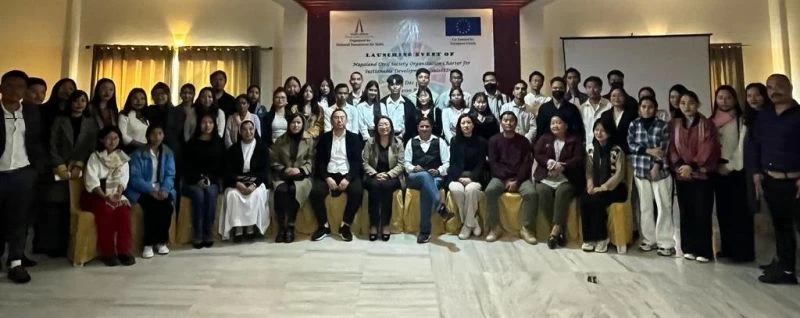
Providing an overview of the charter, Neiteo Koza mentioned that the charter aims to provide crucial policy recommendations for the government in achieving the 17 SDGs in the context of Nagaland. “It discusses key issues through collection of data, consultation with various stakeholders at state and district levels; and gives a series of suggestions at the grassroots,” she said.
In addition it has been formulated to be a supplementary note along with the State government’s own SDG Vision 2030 document, with an appeal to the observations and ideas put forward by the CSOs while framing policies, she added.
Besides the aforementioned goals, she mentioned that the document also touches briefly on social groups, migration, governance and accountability and human rights.
Ketho Angami, convenor of the Charter Adoption Committee meanwhile added that the process for adoption of the charter began in the year 2022, involving a series of consultation, feedbacks, field visits, meetings and awareness campaigns.
Jenpu Rongmei, founder of Can Youth remarked that several challenges needed to be surmounted in order to achieve the aims laid out in the SDGs. Most of the people especially at the rural level do not understand the concept of SDGs, he viewed. Along with this, citizen’s attitude and perceptions must first be developed in order for the State to move forward.


